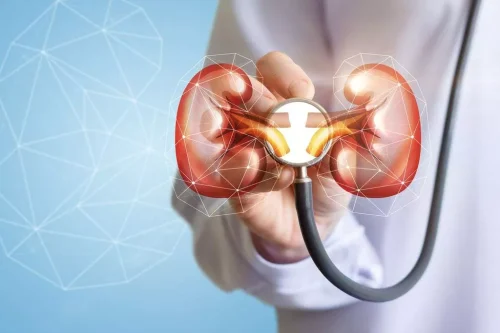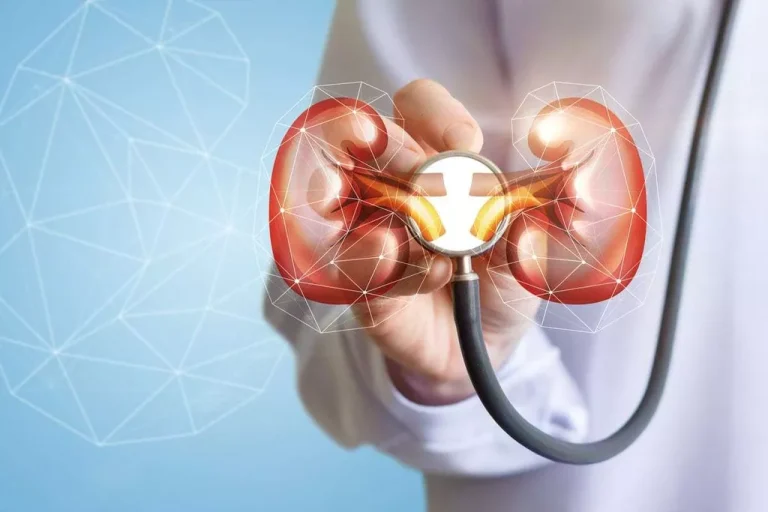
An ethanol patch test involves applying ethanol to a gauze pad on the skin to observe for reactions, aiding in the diagnosis of alcohol intolerance. Alcohol intolerance is a condition characterized by immediate, often uncomfortable reactions to the consumption of alcohol. Alcohol intolerance is an immediate and unpleasant reaction to consuming alcohol. It typically occurs because the body lacks the ability to properly break down alcohol or one of its constituents. At the first signs and symptoms of a severe allergic reaction, it’s essential to use epinephrine and go to the nearest emergency department for immediate follow-up care. It’s also possible to be allergic to proteins in filling agents, such as egg or shellfish, which manufacturers sometimes use to remove fine particles from alcoholic beverages.
- (The drug disulfiram, for example, causes this reaction on purpose as part of treatment for alcohol use disorder).
- Unfortunately, nothing can prevent reactions to alcohol or ingredients in alcoholic beverages.
- Grape allergies are rare, but they have been reported in some medical journals.
- For those who experience allergy-like tolerance changes, it’s important to note that symptoms can worsen over time.
- Another is that an event such as using antibiotics, a period of high stress, or other health-related issues can also trigger an intolerance.
Diagnosis and Tests
Sulfites are preservatives used in the production of certain foods and beverages, including beer, wine, and cider. Alcohol intolerance occurs when your body doesn’t have the proper enzymes to break down (metabolize) the toxins in alcohol. This is caused by inherited (genetic) traits most often found in Asians. Food intolerance can cause significant distress and impact your day-to-day life. We offer a range of lab tests and virtual care services that can help you get to the bottom of your health concerns. A sign that you may have an intolerance is that you have symptoms no matter what type of alcohol you drink.

Discover the Heart-Health Benefits of Weight Loss Medications
Diagnosing alcohol intolerance involves a thorough medical history, physical examination, and specific diagnostic tests. If you experience any of these symptoms after consuming alcohol, seek immediate medical care. Alcohol intolerance happens when the body cannot properly break down alcohol. Alcohol allergy happens when the immune system mistakenly identifies alcohol as a threat and launches an attack that can affect the entire body.
What are the symptoms of alcohol intolerance?
- Even if your parents don’t have the condition, they can pass it to you.
- The only way to prevent these uncomfortable reactions is to avoid alcohol.
- People who find they become intoxicated off a few drinks should limit their consumption accordingly, and not try to “keep up” with others.
- If you’re unsure whether you have an allergy or intolerance, consult with your healthcare provider.
Research suggests that up to 10 percent of asthmatics are sensitive to sulphites, with the severity of reactions varying from mild to life-threatening. “The wheezing and nasal/sinus symptoms in particular are due to the release of sulphur dioxide gas causing airway irritation,” Dr Watts explains. Over a decade later, research is still being conducted into alcohol intolerance. A 2010 German questionnaire surveyed 4,000 people and found that self-reported wine intolerance specifically was present in 5.2% of men and 8.9% of women.

To manage these situations, developing coping strategies that allow participation without compromising one’s health is essential. Genes encoding GABA receptors are also implicated in genetic predisposition to AUD and potentially alcohol intolerance, reflecting the complexity of genetic influences on alcohol-related conditions. Alcohol intolerance is a condition that can cause immediate, uncomfortable reactions after consuming alcohol.

Don’t miss your chance!
The term alcohol intolerance is used for those who cannot process alcohol in the normal way. They often have a gene that is affected that is passed down in the family. There is little evidence that distilled spirits made from corn, including bourbon, pose a risk to people with corn allergies or intolerance. Grape allergies are rare, but they have been reported in some medical journals. In addition to wine, people with grape allergies may need to avoid Armagnac, cognac, ouzo, vermouth, port, and champagne. Most wine coolers and packaged martini mixes should also be struck from the list.
The only way to avoid alcohol intolerance symptoms or an allergic reaction is to avoid alcohol or the particular beverage or ingredients that cause the problem. For a minor reaction, over-the-counter or prescription antihistamines might help reduce symptoms, such as itching or hives. There are other potential causes, such as the onset of certain health conditions, especially some types of cancers, that can significantly impact the body’s ability to process alcohol. These conditions can reduce enzyme efficiency or cause changes in the body’s reaction to toxins, leading to a sudden intolerance to alcohol where none was evident before. While alcohol intolerance from health conditions is very rare, it is crucial to consider these factors and consult your doctor if you notice a sudden change in how your body reacts to alcohol. It’s normal to get sick or experience unpleasant symptoms after drinking too much alcohol.
Is alcohol intolerance treatable?
Get the world’s most fascinating discoveries delivered straight to your inbox. “Ethanol as a cause of hypersensitivit…ic beverages.” Clinical & Experimental Allergy, August 2002. Allergy symptoms that affect breathing or have the potential to block your airway, such as swelling in the mouth or of the tongue, can be life-threatening. If you have any of these symptoms or you are with someone who does, you should immediately seek emergency help by calling 911. If you’re seeking help for yourself or a loved one, our expert team is here to guide you every step of the way. Quitting alcohol completely can be a challenge, but there are more ways to do it than ever before.
Alcohol intolerance may cause a person to experience immediate reactions after they drink alcohol, or they may develop it hours after, the day after, or even later in life. In people with alcohol intolerance, a genetic mutation (change) makes ALDH2 less active or inactive. Acetaldehyde starts to build up in your blood and tissues, causing symptoms. Unfortunately, the only treatment for alcohol intolerance is avoiding alcohol. No drug will help you avoid the symptoms of alcohol intolerance or lessen your cancer risk. Sudden onset alcohol intolerance is when an alcohol intolerance that was not present from birth occurs abruptly later on in life.

If symptoms are getting worse, you have swelling, or you have breathing trouble, go to an ER. Follow your allergy action plan if you have one, which may include using an EpiPen. Once your liver function is affected, this will soon alcohol intolerance start to affect the rate at which it can metabolise other medicines, affecting your overall health and nutrition levels. It is unclear if distilled alcohol made from corn is safe for people with corn allergies. To date, there is little strong evidence of this, though distillation is likely to leave behind only negligible amounts of the proteins from the corn, if any.
